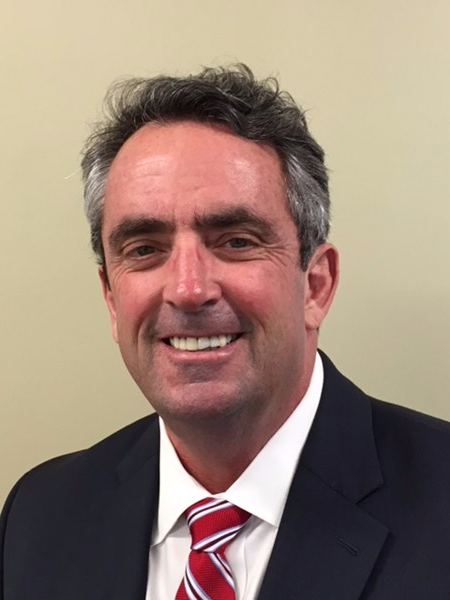The op-ed below written by Jeanne Allen was published in Realcleareducation.com on October 26th, 2017
Matt Damon and I are “in” the same film. I should be thrilled, but it’s a poorly contrived documentary with a storyline worlds apart from the reality of education for most Americans.
Entitled “Backpack Full of Cash” for a phrase I used in an interview with the filmmakers, it posits that the point of any form of education choice – charter schools, opportunity scholarship programs and other alternatives to traditional public schools – is to privatize American education, hence the use of my comments to frame the documentary. The full metaphor is actually focused on equity, and how choice can give power to the least powerful in society when their children are “worth” the same amount of money as everyone else.
Then, schools must vie for the privilege of educating our children, versus forcing them into specific schools, chosen by political actors in school systems, and based on one’s ZIP code. Rather than educate the public about these artificial, adult-centered school assignments and their impact on student outcomes, the producers of the film depict those who believe in education choice as people who seek profit and the ruin of public schools, and those who run failing public schools and fight with millions in taxpayer dollars to protect their contracts, their zoning and their turf day after day as selfless characters. What?!
The traditional school system and its protectors have a captive clientele. Unless you have the money, a proverbial backpack full of cash, to go to private school or move, you are stuck. Being stuck is precisely why charter schools and myriad other options were created. These tools that give parents real power have mitigated poverty, criminality, dysfunctional communities and discrimination – all conditions prolonged by an education system that fails approximately 60 percent of its students year after year.
Sarah Mondale should know this. A producer of the film, she and her uncle, former Vice President Walter Mondale are from Minnesota – the birthplace of charter schools, where progressive educators embraced the importance of student-centered learning, of innovation that knows no walls and of power for parents to decide what school or learning environment works best for their child.
Hollywood star Matt Damon should also know this. A Hollywood millionaire and the film’s narrator, he was blessed with living in the right ZIP code and went to a prestigious little high school a stone’s throw from Harvard Yard, where he would attend college. Only a few miles away, kids in Boston’s poorest neighborhoods find themselves in the wrong ZIP code, with futures as dim as Damon’s was bright. Damon could have described their plight; instead, his narrative papers over a system where bureaucracy and unions mandate uniformity, seniority and tenure, and students are expected to abide a centuries-old system while the rest of the world moves on without them.
It’s not like our actor friend doesn’t understand school choice. Damon chose not to send his children to their assigned public school, even in Pacific Palisades, CA. He once told The Guardian that sending their kids “to private school was a big, big, big deal.” He went on to explain: “And it was a giant family discussion. But it was a circular conversation, really, because ultimately, we don’t have a choice. I mean, I pay for a private education and I’m trying to get the one that most matches the public education that I had, but that kind of progressive education no longer exists in the public system. It’s unfair.” I’ll tell you what’s unfair. Unfair is telling parents of few means that their ZIP code, not the aspirations for their children, will sentence their children to attend schools that fail to educate their students year-after-year, decade-after-decade and generation-after-generation.
By his participation in the film, Damon has taken a very public stand against education opportunity. That’s hypocrisy. He, like many of us, make choices every day that we believe will help our kids receive an education that meets their needs. Surveys and experience show that most Americans believe such choices should be available to every parent, particularly the disadvantaged. He does not. Rather than embrace the notion that money should follow students to the schools that best meet their needs, he succumbed to hallow rhetoric bought and sold by unions whose membership and support base is in decline.
The backers of “Backpack Full of Cash” ignore the global paradigm shift that is transforming education, from small rural districts that have personalized learning to private micro-schools in Africa giving students their first access to learning. The one-size-fits-all factory model of schooling is obsolete – it’s evident in America’s flat test scores and startling high college remedial course rate. SAT scores find less than half of all students exceed college and career readiness benchmarks. And for students who do enroll in college, an estimated 40 percent to 60 percent of first-year students require remedial courses. Technology has transformed access to knowledge, and research has produced information about how brains function and the way students learn that should be changing the way schools are structured. But that’s nowhere in the documentary. It is written like it’s 1950 and Martians have invaded the schools – looking for cash.
The documentary’s trailer ironically argues that the innovations in teaching and learning, to which parents, once given a choice, are making a beeline for their kids to choose, have “a devastating impact on public schools, and the most vulnerable children who rely on them.”
The filmmakers have it exactly backward. It’s the system they are defending that now has the devastating impact on those it was intended to serve. When the zones around failing schools are no longer a barrier and doors are open to them, those who have an alternative will take the exit. They know that their children need schools that work for them, schools that reflect today’s world, not a 180-year old system. When you’re ready to narrate that film Matt Damon, we’ll get you a truly progressive filmmaker. And some cash.
Jeanne Allen is Founder & CEO of the Center for Education Reform. Allen was interviewed for the film, which was portrayed by the producers as a broad overview of education reform, with no indication of the bias of the actual product.
















